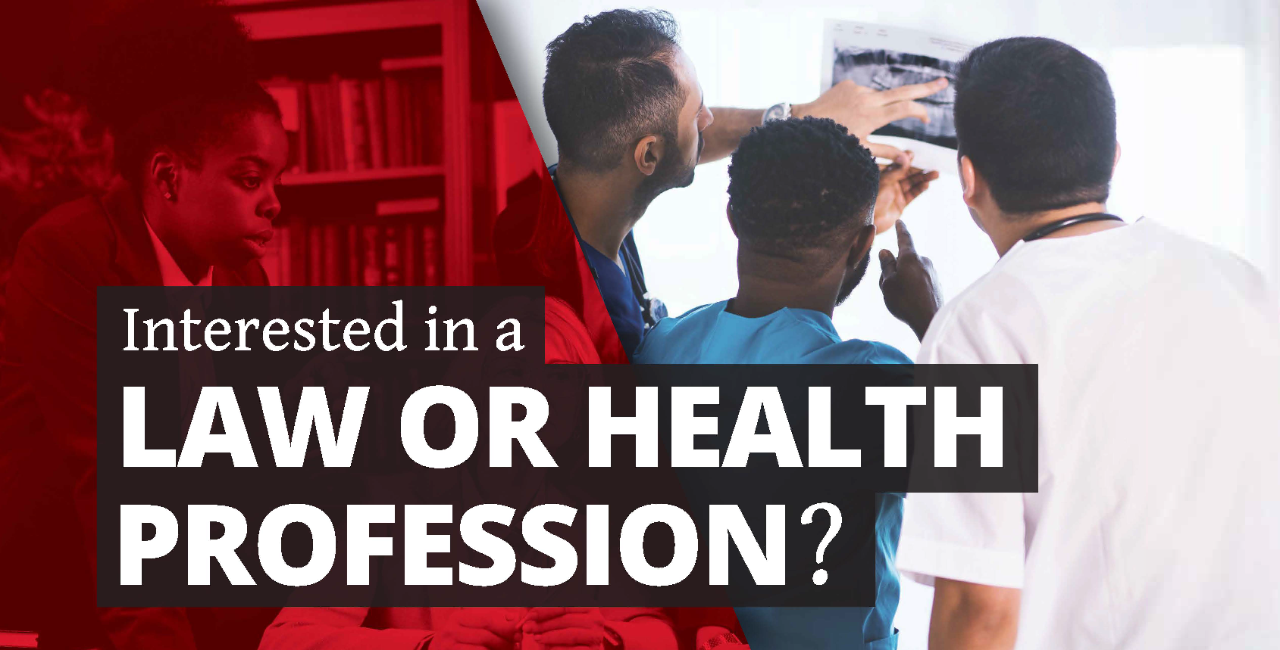Read what the US Bureau of Labor Statistics has to say about this career.

What does it mean to be a pre-pharmacy student?
Pre-Pharmacy students have the desire to become a pharmacist and are exploring the field through employment or observation at a pharmacy, in various settings. They are excelling in pre-requisite coursework and investigating admissions expectations of various colleges of pharmacy. Students are are active in campus life and community service.
What are the admissions requirements?
Click here for pharmacy school prerequisites and a listing of core preqequistes for most health professions programs.
Pre-Pharmacy coursework at the University of Cincinnati consists of the prerequites for admission to UC's James L. Winkle College of Pharmacy. Students who wish to apply to this program must complete these courses.
Generally, these courses satisfy prerequisite requirements of most pharmacy schools, however there may be specific requirements for different programs. Students should speak with a PPAC advisor and consult the admissions literature for the specific requirements at each school in which you are interested.
Competitive pre-pharmacy students also possess these important qualities: competitive metrics, strong personal attributes and have meaningful pre-pharmacy and other professional experiences. Visit this webpage for more information about these critical components of your application and meet often with a Pre-Professional advisor.
Everyone's path to pharmacy school is unique. We encourage students to explore the options for achieving their goal of gaining admission to pharmacy school.
The Bachelor of Interdisciplinary Studies-Pharmacy degree path is designed for students who will complete an interdisciplinary liberal arts bachelor's degree in addition to the Pharm-D degree.
Students will complete all the pre-pharmacy and A&S degree requirements in three years so that they will be on track to complete a BA degree at the end of the fourth year (which coincides with the first professional year in the James L. Winkle College of Pharmacy).
Students can follow the 78-credit hour pre-pharmacy curriculum (not a degree-granting program) which is completed in three years. Competitive students will apply to pharmacy school the summer between their second and third years. Students will work closely with their academic and Pre-Professional advisors as they work towards applying to pharmacy school.
Some academically strong high school students may be admitted to PharmCat Scholars, an early assurance pathway to the Doctor of Pharmacy (PharmD) degree at the James L. Winkle College of Pharmacy.
This program is open to incoming freshman as well as current UC students.
Learn more about this program at pharmacy.uc.edu/academic-programs/pharmd.html - see "Special Programs" section and contact the James L. Winkle College of Pharmacy with questions.
The bachelor’s degree in Health Sciences meets the undergraduate requirements for most graduate programs in the medical and allied health professions, including pharmacy. A comprehensive background in the basic sciences combined with applied studies in exercise physiology, biomechanics and kinesiology, and advanced basic science studies in biochemistry, cell biology and microbiology puts most graduates with this degree in a position to be competitive graduate school candidates.
What do pharmacy schools consider when evaluating applicants?
The criteria for admission varies from school to school, but usually include academic record (GPA), letters of recommendation, demonstrated knowledge and commitment to the profession through experience and personal attributes, and a personal interview.
Personal characteristcs such as integrity and maturity are considered. Early in your college career you should consider exploring the pharmacy field through volunteering, employment or shadowing.
What GPA do I need to get into pharmacy school?
This varies from school to school. The average GPA of students accepted into pharmacy school is 3.36. (Source: Enrollment data reported in the Fall 2016 Profile of Pharmacy Students). It is particularly important that you perform well in your science courses. It is important for those considering professional school to be realistic about the extent to which performance meets admissions expectations.
Is it all over if I have a bad semester?
Admission committees look at the "big picture" as they evaluate applicants. They realize that every student does not hit the ground running when they enter college. Admission committees expect an excellent academic record, but may make some allowances for a problem semesters, slow start or rough spot. If academic problems arise, you must bounce back and perform better than ever to show that the problem was an exception, rather than the rule. Use resources such as professor and T.A. office hours, the Learning Commons and other Academic Excellence & Support Services offices.
The cost of your education as well as the amounts and types of aid varies by institution. You should investigate the costs early in your undergraduate career. Knowing that you will likely incur substantial loan debt for medical school may affect the way that you borrow for your undergraduate education. Most applicants are eligible for government originated aid; apply during January of your application cycle, even if you are still waiting to find out whether or not you have been accepted. Apply for aid at fafsa.gov.
Scholarship availability and criteria varies by institution.
How can the Pre-Professional Advising Center (PPAC) help me?
Preparing for admission to pharmacy school requires careful long-range planning and accurate information. The PPAC specializes in providing you with necessary information and helping you develop good planning skills. The staff of the PPAC provides you with help through each step of the way. PPAC provides services including course selection, career exploration, time management tips, information on individual schools, admissions test preparation advice, managing letters of recommendation and links to ways to get experience in health care settings.